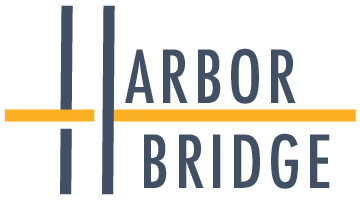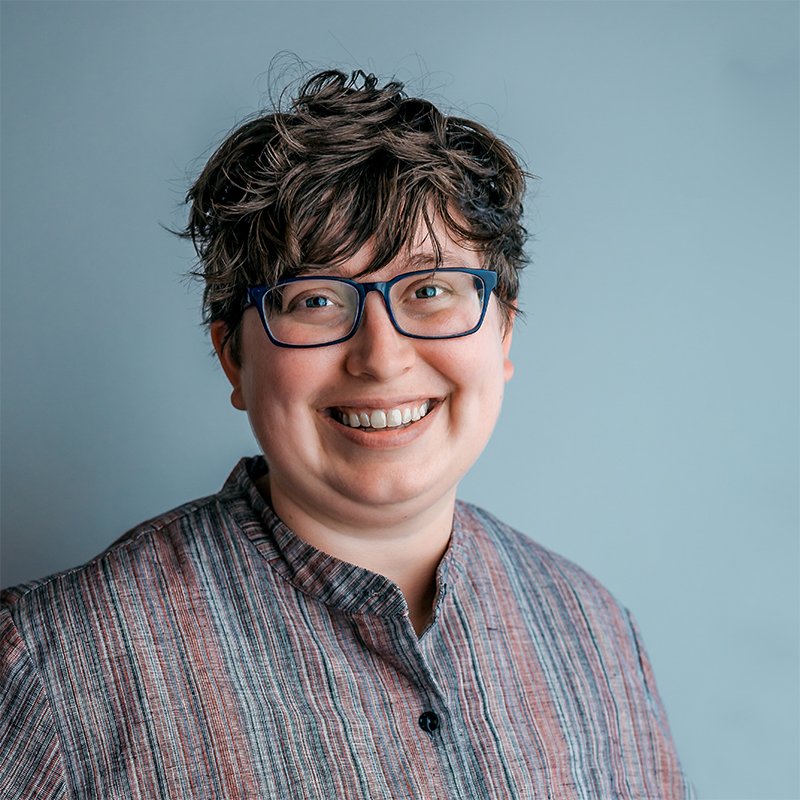Meet Emily: The newest member of the Harborbridge Team!
It is with excitement and great pleasure to introduce you to Emily Grantz, the newest member of the Harborbridge team!
I first met Emily when I attended a workshop they facilitated and was immediately impressed by their ability to connect with the participants, bring the learning to life and create an engaging and transformative educational experience.
Emily will be a lead facilitator for our Leadership Foundations program, an eight-week course designed to support first-time or emerging leaders with the fundamental skills for effective communication, employee engagement, productive and inclusive team environments and the confidence to pull it all off.
Learn more about Emily in our conversation below where we discuss their perspective and approach to learning and development and their role at Harborbridge.
Could you start by telling us about your professional background and how it led you to the work you do today?
Absolutely, Katie. My masters is in library and information sciences which really opened my eyes to the power of information accessibility and sharing. This interest led me to various roles in facilitation, training and professional learning and development.
What excites you about the Harborbridge Leadership Foundations program?
I'm excited to help folks step into being the best leaders they can be. Managers and the presence they bring to their workplaces, can have a big impact on the work culture. I am excited to support folks in their journey to being a force for positive change within their organizations.
Describe your perspective on your role as a facilitator?
For me it is all about guiding people through an engaging experience, much more than just delivering content with a dry powerpoint. It's about making the learning process interesting and fun and to connect with the material in a meaningful way.
I agree completely. In your view, what makes professional learning and development important?
Many professionals spend their days responding to urgent tasks demanded by their roles, which leaves them in a place where they're in survival mode. Professional development is crucial for moving from just getting by to thriving. Leaders, especially, need the skills to look ahead, be strategic and creative, not just for themselves but for their teams. It's about having a growth mindset, especially for folks who are leading others.
What misconceptions do you think people have about professional development?
Something unfortunate is that there are a lot of poorly designed professional development courses that organizations have made mandatory training for their teams. This makes training seem like a chore rather than an opportunity. It's essential to see continuing education as a chance to expand one’s horizons, not just a box to check off.
How can an organization mitigate this?
It starts with making professional development an ongoing conversation between teams and their managers, focusing on each team member and the actual areas they need to develop and their goals. When training is aligned with an individual's career goals and growth areas, it naturally becomes more engaging and relevant. This approach not only makes the training feel more valuable but also ensures that it's not seen as a mere formality or a waste of resources.
Looking at how you go about training and facilitating, what are key characteristics of your approach?
I focus on building a solid connection to learn what folks’ goals are and what they want to get out of our work together.
I also focus on understanding their personal and professional context to make sure the content we cover is directly relevant to them. Adult learners are coming in with a lot of experience and knowledge already, and it’s important to recognize and build on that. Instead of just dumping information on them, I aim to make connections between what they already know and the new concepts we discuss.
This approach respects their existing skills and insights and makes for a more interactive and engaging learning experience. Essentially, it’s about meeting them where they are—not only in terms of their knowledge gaps but also their existing strengths.
I also find open-ended questions to be a powerful way for people to untangle patterns, gain self-awareness and apply the content to their world.
Looking at the big picture, what do you find most rewarding about your work?
I find it incredibly rewarding to see people step into their potential and offer the world their unique skills and perspectives. I think it’s rare, with the way our culture’s work and economy are structured, that people get the chance to fully realize their full selves, especially professionally. I love being part of that process, helping them get closer to achieving their personal and professional goals.
Bringing Emily on board marks a significant milestone for Harborbridge, underscoring our commitment to delivering impactful professional development opportunities. Emily’s proven expertise and dedication to excellence complement our mission to provide meaningful and practical learning and development programs that truly meet the needs of today’s professionals.
We are excited for the dynamic energy Emily will bring to the Leadership Foundations program, and we can't wait to see how their contributions will drive transformative change for the individuals they will work with.
To see how Leadership Foundations can transform leadership within your organization, connect with us to schedule a personalized consultation.

